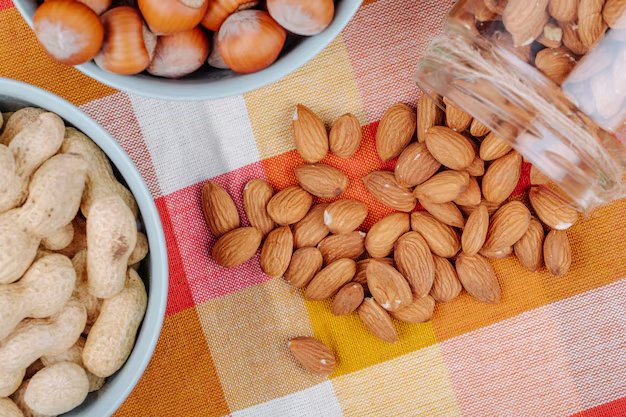Storing Pecans: How Long Do They Last in the Refrigerator?
Whether you're a pecan pie enthusiast, a health nut, or someone who simply loves snacking on these crunchy delights, understanding how to properly store pecans can help you make the most out of your stash. Pecans, like many nuts, have a rich oil content, making them susceptible to spoilage if not stored correctly. But how long do pecans last in the refrigerator, and what can you do to extend their freshness? Let's crack open the details.
🥜 The Shelf Life of Pecans in the Refrigerator
Pecans are often purchased in bulk, which means proper storage is crucial to maintaining their quality. When stored in the refrigerator, pecans can last anywhere from six months to a year. This extended shelf life is due to the cooler temperatures, which slow down the oxidation process that makes nuts rancid.
Why Refrigerate Pecans?
Pecans contain unsaturated fats that can become rancid when exposed to heat, light, or air. Refrigeration helps mitigate these risks by providing a cool, stable environment. Additionally, keeping pecans in the fridge can also help deter pests and maintain their natural flavor and crunch.
Proper Storage Techniques
To maximize the shelf life of pecans in your refrigerator, here are some best practices:
Airtight Containers
Store pecans in airtight containers to protect them from moisture and strong odors from other foods. Glass jars or vacuum-sealed bags are excellent options. This type of packaging minimizes exposure to air, thus preventing oxidation.
Prefer Shelled Over Unshelled
Shelled pecans tend to be more convenient, but if you’re looking to preserve freshness for extended periods, consider buying them unshelled. The shell acts as a natural barrier against moisture and air, enhancing longevity.
Keep Away From Odors
Pecans can absorb odors from strong-smelling foods like onions or garlic. Keep them away from such items by placing them in designated shelves or bins in your refrigerator.
Recognizing Rancid Pecans
Even with optimal storage, pecans can eventually become rancid. Rancid nuts will often develop a bitter taste and an off-putting smell. When in doubt, perform a quick taste test—if they taste stale or bitter, it's time to discard them.
Beyond the Refrigerator: Alternative Storage Options
While the refrigerator is a common storage choice, there are other methods to extend the life of your pecans:
Freezing Pecans
For even longer storage, consider freezing your pecans. Frozen pecans can last up to two years without significant loss of flavor or texture. Ensure they're stored in airtight, freezer-safe bags to protect against freezer burn.
Pantry Storage
If you're short on refrigerator space or plan to use pecans quickly, storing them in a cool, dark pantry can be a short-term solution. However, expect a reduced shelf life, typically around three months.
Practical Tips for Using Pecans
Small Batches
If you're using pecans frequently, consider keeping a small batch in the pantry for easy access, while the bulk remains refrigerated or frozen. This allows for convenient use while maintaining freshness in the larger stored batch.
Toasting Pecans
Before using refrigerated or frozen pecans, enhance their nutty flavor by lightly toasting them in the oven. This quick step can restore crunch and flavor that may have diminished during storage.
Summary: Key Takeaways for Storing Pecans
Here’s a handy summary to help you keep your pecans fresh and delicious:
- Refrigerate pecans for a shelf life of six months to a year.
- Use airtight containers to prevent oxidation and odor absorption.
- Keep pecans in their shell for extended freshness.
- Avoid storing near strong odors; pecans can absorb them.
- Freeze pecans for up to two years for ultimate longevity.
- Be aware of rancid nuts: look for off flavors and smells.
- Toast before use to enhance flavor.
Exploring Pecans' Culinary Uses
Besides knowing how to store pecans, it's essential to understand why they are a favorite in so many kitchens across the globe. Their rich, buttery flavor makes them versatile for various dishes.
In Baking
Pecans are a staple in dessert recipes, from classic pecan pies to brownies and cookies. Their sweet, nutty profile enhances the taste and texture of baked goods.
As Garnishes
Sprinkling roasted pecans over salads, oatmeal, or yogurt adds a satisfying crunch. They also pair well with roasted vegetables, providing a textural contrast.
As a Protein Substitute
For those following plant-based diets, pecans can serve as an excellent source of protein. Use them in vegan recipes like nut-based cheeses or meat substitutes for a nutritional boost.
Maximizing Freshness with Sustainable Practices
Considering the environmental impact of food waste, it's vital to incorporate sustainable practices into our food storage habits.
Buying in Bulk vs. Smaller Quantities
While bulk purchases might seem economical, buying smaller quantities can be more sustainable if you're unsure about your usage timeline. It reduces the risk of spoilage and waste.
Waste Reduction Through Preservation
When pecans near the end of their storage life, consider making pecan butter or adding them to a batch of granola. These preservation methods ensure that none of your purchase goes to waste.
Final Thought: Embrace the Versatility and Benefits of Pecans
Understanding how to store pecans effectively not only enhances their shelf life but also maximizes their flavor and nutritional benefits. By using practical storage techniques, you can enjoy these healthy nuts at their best, reducing waste and maintaining quality. Pecans are a delightful addition to a wide range of dishes, offering both taste and health benefits. So, store them wisely, use them creatively, and enjoy the nutty goodness they bring to your culinary adventures. Bon appétit!

